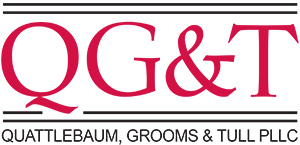E-Discovery Alert: Proportionality
November 2015
by Meredith M. Causey and Michael B. Heister |
Demonstrating the burden or expense of complying with discovery often requires an affidavit or other evidentiary proof of the time or expense involved in responding to the discovery request. The IT personnel in charge of the requested information is usually a good starting point. A June 2015 decision by the U.S. District Court for the District of Kansas discusses a party’s insufficient proof regarding its proportionality objection.
In Cargill Meat Solutions Corp. v. Premium Beef Feeders, LLC, No. 13-cv-1168-EFM-TJJ, 2015 WL 3937410 (D. Kan. June 26, 2015), the court considered the defendants’ motion to compel and the plaintiff’s objection to discovery based on proportionality. In this breach of contract case, the defendants sought to compel production of documents related to “hedging and/or risk management strategies and/or policies for all cattle purchased” pursuant to the agreement at issue in the case. The plaintiff objected that the discovery sought was not proportional and should not be compelled.
The court held that a party asserting an unduly burdensome objection to a discovery request must show “not only undue burden or expense, but that the burden or expense is unreasonable in light of the benefits to be secured from the discovery.” In addition, a party must “provide sufficient detail in terms of time, money and procedure required to produce the requested documents.”
In this case, the plaintiff failed to meet its burden by only providing an estimate that complying with the discovery request would require searching additional custodian records and cost $4,000 to $5,000 per custodian. The plaintiff did not identify how many custodians would be involved and failed to explain why this cost would be disproportionate to the amount in controversy, which was in excess of $2 million. The court granted the motion to compel and concluded that the plaintiff failed to adequately establish the alleged burden of producing the requested discovery.
For more information, please contact Meredith M. Causey at 501-379-174.3 or mcausey@QGTlaw.com or Michael B. Heister at 501-379-1777 or mheister@QGTlaw.com.
